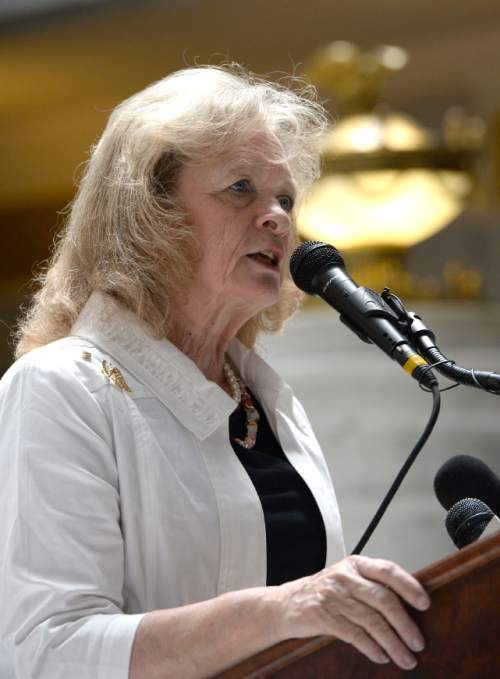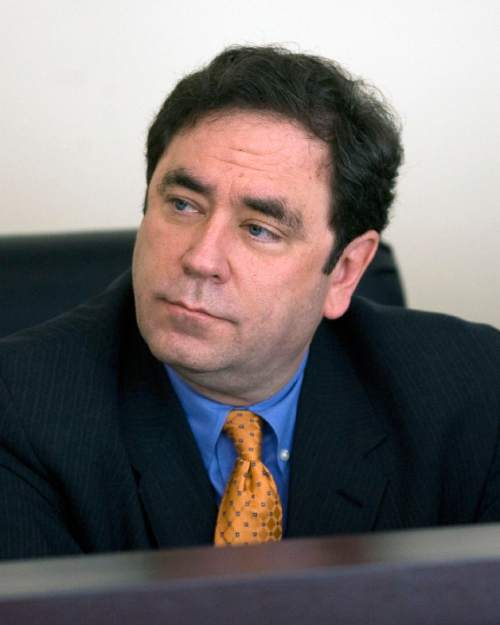This is an archived article that was published on sltrib.com in 2016, and information in the article may be outdated. It is provided only for personal research purposes and may not be reprinted.
A battle is returning to the Legislature over whether to allow comprehensive sex education in Utah schools — instead of just the abstinence-only curriculum now permitted.
"Knowledge is power. I don't believe in keeping our kids ignorant," said House Democratic Leader Brian King who introduced HB246 to allow comprehensive sex education.
But Gayle Ruzicka, president of the conservative Utah Eagle Forum promised to fight the move.
"Comprehensive sex education is all about teaching children that it's OK to have sex as long as they use a condom. It just doesn't work," she said.
King says his bill is needed because the rates of sexually transmitted diseases are rising quickly, and youth need more education to protect themselves. Ruzicka says Utah ranks among the lowest in the nation for such diseases, and for abortions, showing that abstinence-only education works best.
Statistics support both arguments, to a point.
Data from the Centers for Disease Control show that in 2014, Utah ranked a low No. 47 for the rate of chlamydia among the states, and No. 43 for gonorrhea.
But those rates have been rising quickly. The rate of cases of gonorrhea per 100,000 Utah residents was 49.7 in 2014, quintupling from 9.8 in 2011. Utah's rate for chlamydia rose from 251.5 cases per 100,000 people in 2011 to 283.5 in 2014.
King said youth need to be able to ask teachers and health officials questions like, "What's the difference between gonorrhea and chlamydia? How do they manifest themselves? Can you get it from other types of sexual behavior that doesn't involve intercourse?"
He said, "I don't know the answers to those kinds of things and the kind of detail that public health officials do."
King adds that families "talk a good talk about having these discussion about facts relating to sexual relationships. But we really don't have the knowledge or the comfort level to have these discussions with our kids, and our kids don't have that comfort level either."
Schools should offer the information, he said, adding classes would be opt-in for parents to choose whether their children would participate. "It's not going to be forced on anybody. It's not going to be done without the parents knowing what's going on."
Ruzicka said comprehensive sex education isn't needed and is counter-productive.
"We have the best record anywhere, yet they keep trying to say, 'No, we've got to teach children all of this stuff so they can protect themselves,' when you are just encouraging them by saying, 'We believe you're having sex so we've got to teach you what you need to do when you have sex.'"
King acknowledges that because Utah and the Legislature are so conservative, it will be tough to pass the bill — and may require repeated effort for years. "We want to have a good dialogue. We need to educate people. We need to talk about the importance of doing this. We are going to be talking about this for a while."
King's bill would also require the state to seek a Medicaid waiver available from the federal government to provide family planning services for low-income people in the gap that make too much to qualify for Medicaid, but cannot obtain insurance the the Affordable Care Act.
He said the federal government has offered for years — even before the ACA passed — to provide that at a 90-10 cost split to the state.





